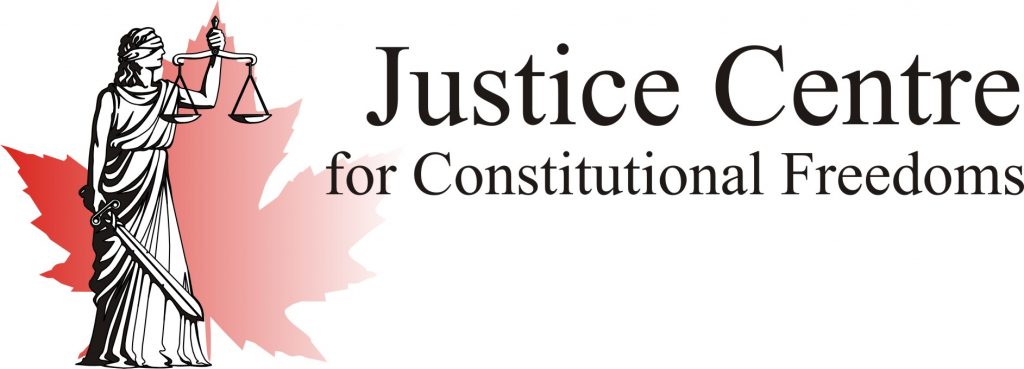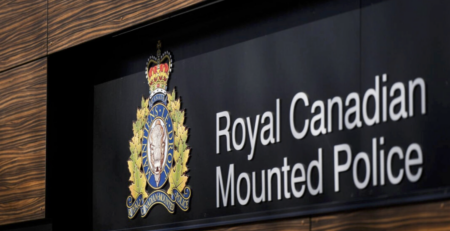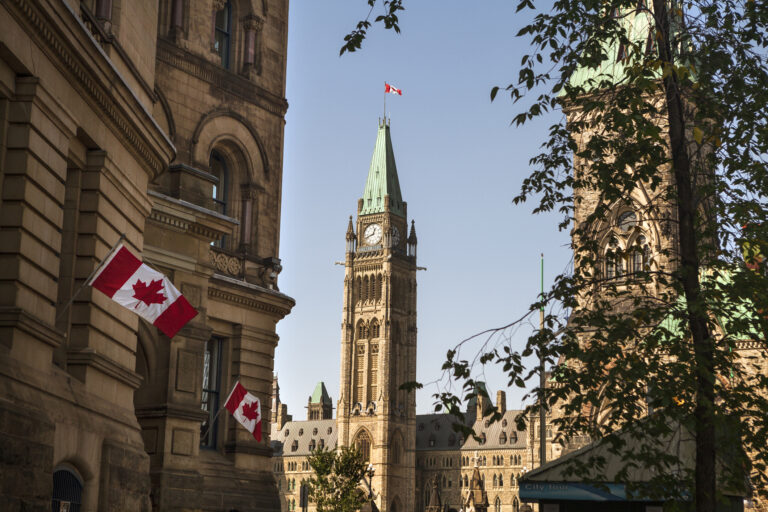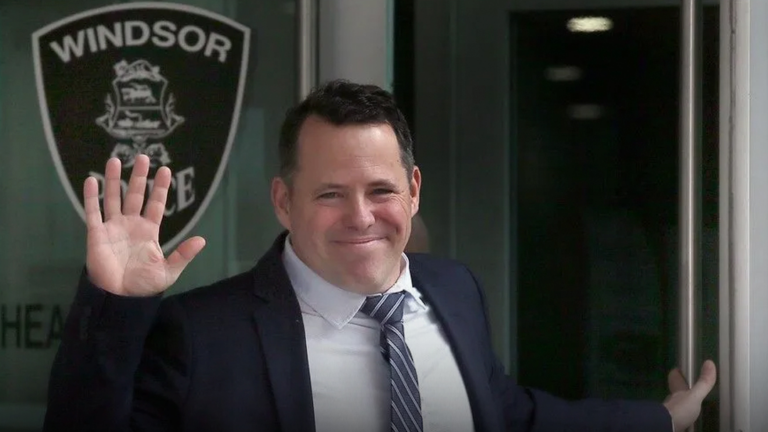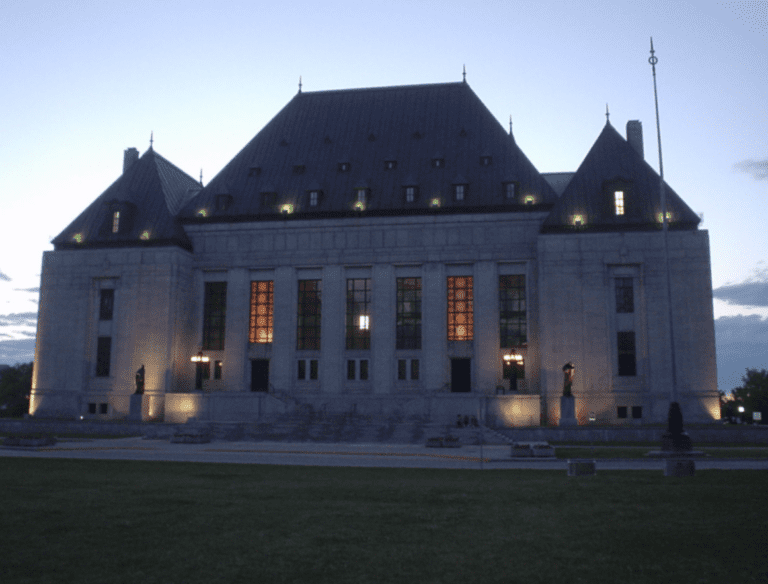April 8, 2013
ABBOTSFORD, B.C.: The Justice Centre for Constitutional Freedoms (JCCF) today challenged Dr. Mark Evered, President of the University of the Fraser Valley (UFV), to uphold the campus free speech rights of students by not cancelling a scheduled event on the basis of threatened protests.
On March 20, 2013, UFV approved an event organized by the campus club UFV Life Link, featuring as speaker Mike Schouten of WeNeedaLaw, a group which advocates for legal protection for the unborn. This event is scheduled to take place on Wednesday, April 10, at 7:30 p.m. on the UFV Abbotsford campus, in room B101.
This past Friday, April 5, UFV informed Life Link that it intends to cancel the event because of the possibility that protesters may be present. UFV has also attempted to censor the content of Life Link’s literature.
Recent developments at the University of Waterloo and other Canadian universities have seen the disruption and cancellation of events by loud and unruly protesters. Rather than upholding the rights of students to express – and to listen to – the expression of all views, some Canadian universities have chosen to capitulate to mob rule and allowed events to be shut down by those who disagree with the opinions that would be expressed at the event. The University of Waterloo condoned the silencing of National Post columnist Christie Blatchford (2010) and MP Stephen Woodworth (2013). Both were invited to speak on campus, and in both cases U-Waterloo campus security stood by and watched while loud and unruly protesters effectively forced the speaking engagements to be cancelled.
Calgary lawyer and JCCF president John Carpay has challenged UFV President Mark Evered to uphold the campus free speech rights of all students, explaining in a letter that the University has a legal obligation to prevent protesters from shutting down expression that protesters disagree with. The letter is reprinted below.
——————————–
April 8, 2013
Dr. Mark Evered
President and Vice-Chancellor
University of the FraserValley
33844 King Road
Abbotsford B.C. V2S 7M8
Dear Dr. Evered,
We act for Ashley Bulthuis and UFV Life Link, a registered University of the FraserValley (hereinafter “UFV”) campus club.
We understand from Ms. Bulthuis, president of UFV Life Link (hereinafter “Life Link”), that on March 20, 2013, UFV approved a Life Link event to take place on Wednesday, April 10, at 7:30 p.m. in Room B101 on the Abbotsford Campus. This April 10 event, approved by UFV, features a presentation by Mike Schouten from the group “We Need a Law,” which advocates for the protection of the pre-born through legislation.
On Friday, April 5, 2013, Jill Harrison, Manager of Student Life, informed Ms. Bulthuis that this event would be cancelled due to “security concerns” arising from the possible presence of protesters.
UFV has also threatened Life Link with censorship of the content of this event, as Ms. Bulthuis was told in prior weeks that Student Life had “concerns” about the content of the literature that was to be placed on tables and distributed outside the room where the event was being held. Due to UFV’s attempted cancellation of this April 10 event, these censorship concerns were never settled.
In the month of March, 2013, UFV’s Student Life has also prohibited Life Link from distributing the club’s materials in the hallways, a practice called “tabling”. Instead, the club has been restricted to distributing its materials inside a room only – a restriction not placed on any other campus club. Due to UFV’s discriminatory restriction, Life Link cancelled its planned literature distribution in March.
In Young v. Bella, [2006] 1 S.C.R. 108, the Supreme Court of Canada held that a contractual relationship exists between a student and a university. Numerous other Canadian court decisions have held that the terms of the contract between a student and her university can be found in the university’s calendar, mission, vision, principles, and academic policies. The principle of freedom of expression for students on campus is clearly articulated as foundational to UFV, and is enforceable under the law of contract. This sudden cancellation of Life Link’s approved event, and the content-censorship by UFV of Life Link’s expression, are an illegal breach of the student-university contract.
Your attempted cancellation of this April 10 event, and your content-based censorship of Life Link’s expression, is contrary to UFV’s Board Policy on Academic Freedom, which states:
The university is committed to the belief that the exchange of knowledge and ideas in an environment of intellectual freedom is an indispensable foundation of quality education. Academic freedom is one means to ensure that an environment of intellectual freedom is sustained. Academic freedom includes the right of all members of the university community to inquire, discuss, speak and express themselves, study, conduct research, teach, publish, associate, create and exhibit their work without hindrance or restriction by the university or any of its representatives.
In addition to UFV’s Board Policy on Academic Freedom, UFV’s Statement of Institutional Ethics provides further support for the right of Life Link students to inquire into and present controversial views:
Members of UFV have academic and artistic freedom, which includes the freedom to investigate controversial views, to hold unpopular positions on controversial issues, and to present in class and in the wider community one’s controversial views. Members of UFV have a positive duty to ensure that our institution encourages students, faculty, staff and administrators to use their own best judgement in choosing what to investigate and in the pursuit of truth within their investigations. Students, in particular, have a right to be free from indoctrination and other forms of miseducation that fail to respect the autonomy of the student.
UFV’s Board Policy on Academic Freedom and UFV’s Statement of Institutional Ethics form part of the contract between UFV and its tuition-paying students. This contract imposes a legal obligation on UFV to uphold the free speech rights of all students and all viewpoints, without discrimination. Upholding campus free speech rights requires UFV to refrain from content-based censorship and discrimination, and also require UFV to uphold free expression rights when challenged by protesters engaged in loud, unruly or disruptive behaviour.
If a university implements a policy of cancelling events the moment it learns that protesters might be present at an event, the university is no longer a safe space for the peaceful expression of a broad range of diverse opinion. When a university cancels events on threat of protest, the university effectively encourages students (and other people) to silence their opponents rather than listening to alternative viewpoints and engaging in intellectual debate.
UFV’s Board Policy on Academic Freedom and UFV’s Statement of Institutional Ethics ring hollow if UFV refuses Life Link students the right to hold events in which controversial viewpoints are expressed, merely due to a possibility of protest. It is common for controversial ideas to provoke protest. As long as the “protest” consists of challenging opposing viewpoints by peaceful means, such as asking difficult questions during the question-and-answer session, such protest should be welcomed. Conversely, if the “protest” consists of loud and disruptive behaviour that shuts down an event or prevents the event from getting started, such conduct would be in violation of UFV’s own policies governing student behaviour, and arguably in violation of the Criminal Code of Canada. If UFV refuses to uphold its own policies prohibiting the shutting down of events by way of loud, unruly and disruptive protests, then UFV is encouraging mob rule, in violation of its own Board Policy on Academic Freedom and Statement of Institutional Ethics.
By shutting down an event at which there may be protest, UFV is refusing to protect the expression of Life Link, and UFV is encouraging mob rule on campus.
Censorship of the content of the club’s literature also is contrary to UFV’s Board Policy on Academic Freedom and Statement of Institutional Ethics. This Policy and Statement have no meaning if UFV will not protect the right of students to communicate controversial viewpoints. Indeed, the UFV acts in opposition to its Statement and Policy in attempting to cancel this April 10 event, and in censoring the club’s materials.
Further, UFV’s Statement of Institutional Ethics is especially pertinent to this instance when it says further:
Controversial and sensitive issues are not to be avoided, but ought to be addressed rationally and in a manner that respects the beliefs and feelings of other people. Consequently, such discussions ought to encourage listening carefully to diverse views, the judicious consideration of evidence and argument, and the active search for good reasons for one’s own and others’ positions. As much as possible, the development of capacities for critical, imaginative and constructive thought ought to be promoted.
By cancelling the Life Link “We Need a Law” event and threatening to censor event materials, UFV is acting in opposition to its own stated policies, which UFV is legally obligated to honour.
The Supreme Court of Canada in Irwin Toy Ltd. v. Quebec (Attorney General), [1989] 1 SCR 927, held that Section 2(b) of the Canadian Charter of Rights and Freedoms protects all non-violent expressive activity, without discrimination based on content, however unpopular, distasteful, or contrary to the mainstream. In R. v. Zundel, [1992] 2 SCR 731, the Court held that the purpose of freedom of expression serves to protect minority beliefs which the majority regard as wrong or false. The view of the majority has no need of constitutional protection, because it is tolerated in any event.
UFV is not legally authorized to cancel a club event simply because the content of the event is controversial, or because protesters threaten to attend the event. For reasons that are set out in UFV’s own Policy and Statement, the protection of controversial speech is the essence of the protection for freedom of expression. Controversial and unpopular speech, by its very nature, needs protection and provides impetus for democratic discourse.
It is only by allowing dissent and debate that institutions of higher learning can provide the rich soil needed for intellectual growth. Universities should be supporting free speech and vigorous debate, not attempting to muzzle it. As John Stuart Mill stated “To refuse a hearing to an opinion, because they are sure that it is false, is to assume that their certainty is the same thing as absolute certainty. All silencing of discussion is an assumption of infallibility”.
As tuition-paying students, Ms. Bulthuis and other members of Life Link enjoy a contractual right to express their views on campus, regardless of how popular or unpopular such views may be. This is a legal right. This is not a privilege which UFV has discretion to grant or deny. Your attempted cancellation of Life Link’s event – and event already approved by UFV on March 20, 2013, is illegal because it breaches the contract between UFV and tuition-paying students.
Further, UFV operates under the authority of University Act, R.S.B.C. 1996, c. 468. As a public body exercising statutory authority to carry out a public function, UFV has a legal obligation to serve all students fairly, without discrimination based on a student’s views, opinions, beliefs or philosophy. UFV also has an obligation to act in harmony with the Canadian Charter of Rights and Freedoms, which protects the students’ right to freedom of expression.
In Roncarelli v. Duplessis, [1959] SCR 121, the Supreme Court of Canada made it abundantly clear that administrative decision-makers must exercise their statutory discretion according to the purpose of the statute, not arbitrarily or based on irrelevant considerations. In Roncarelli, the Court held that the Commission’s discretion under Quebec’s Alcoholic Liquor Act could not be used to revoke the liquor licence of the restaurant of a Jehovah’s Witness because he had assisted his unpopular co-religionists with their legal troubles. At page 140, Rand J stated:
In public regulation of this sort there is no such thing as absolute and untrammelled “discretion”, that is that action can be taken on any ground or for any reason that can be suggested to the mind of the administrator; no legislative Act can, without express language, be taken to contemplate an unlimited arbitrary power exercisable for any purpose, however capricious or irrelevant, regardless of the nature or purpose of the statute. Fraud and corruption in the Commission may not be mentioned in such statutes but they are always implied as exceptions. “Discretion” necessarily implies good faith in discharging public duty; there is always a perspective within which a statute is intended to operate; and any clear departure from its lines or objects is just as objectionable as fraud or corruption. Could an applicant be refused a permit because he had been born in another province, or because of the colour of his hair? The ordinary language of the legislature cannot be so distorted.
UFV has a duty to deal in good faith, without discriminating against a campus club on the basis of its beliefs, opinions or philosophy. The University cannot exercise its statutory discretion through the last-minute cancellation of an approved event. The University Act does not authorize this arbitrary and inappropriate use of power.
Members of Life Link merely seek to exercise the same right that other students and other clubs at UFV enjoy: the right to express their beliefs and opinions on campus in a peaceful manner. This right does not depend on how popular or unpopular one’s opinions may be, nor does this right disappear in the presence of protesters.
We hereby request, on behalf of UFV Life Link, that the cancellation of this planned event on campus be reversed immediately. We further request that you instruct UFV administrators and staff as to their legal obligation to refrain from discriminating against UFV Life Link in any manner, including in the censorship of Life Link’s materials.
If UFV does not reverse its decision to cancel Life Link’s April 10 event, or if UFV does not cease its content-based censorship of Life Link’s expression, Life Link will have no reasonable alternative but to commence court proceedings against UFV, seeking an injunction and costs as well as damages for breach of contract, without further warning or notice.
Yours truly,
John Carpay, B.A., LL.B
cc. Ashley Bulthuis, President, UFV Life Link
Dr. John Dixon, B.C. Civil Liberties Association
Dr. Clive Seligman, Society for Academic Freedom and Scholarship


